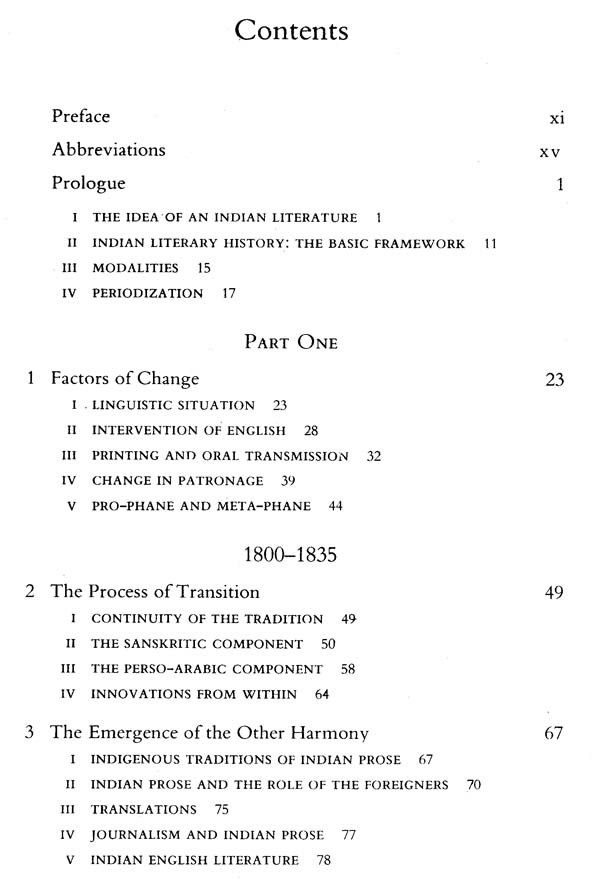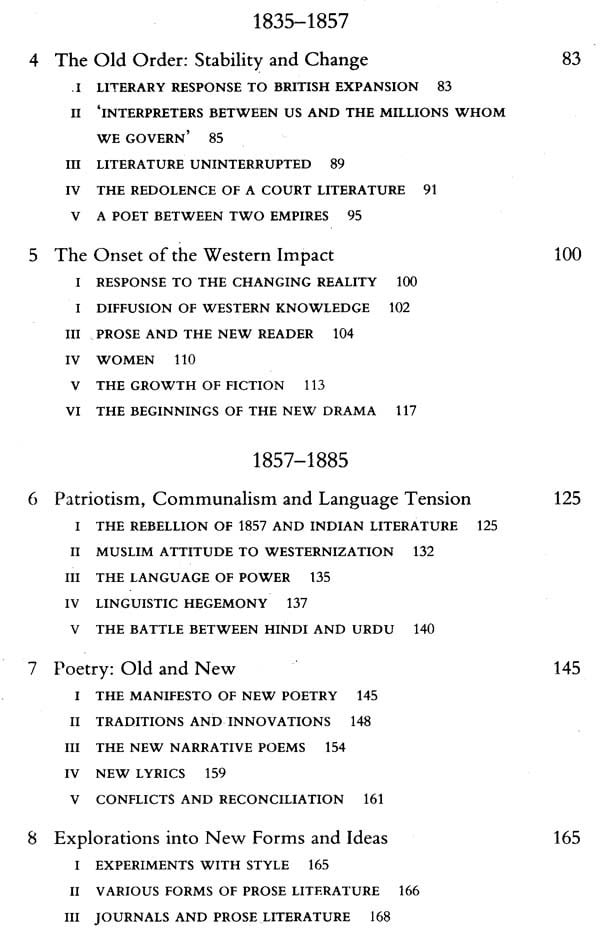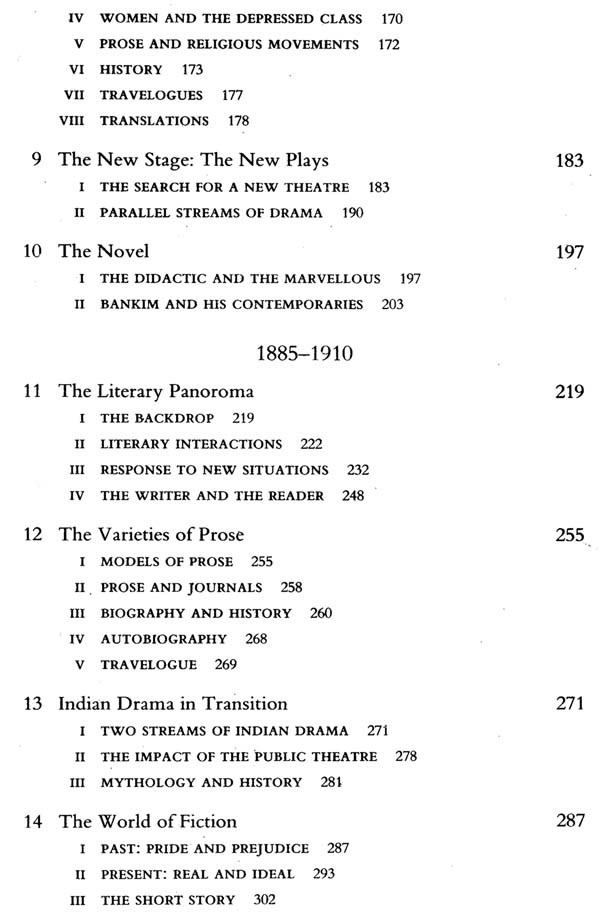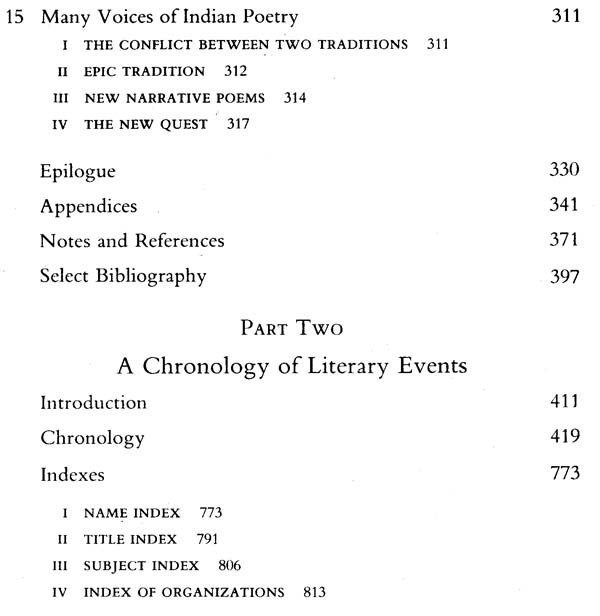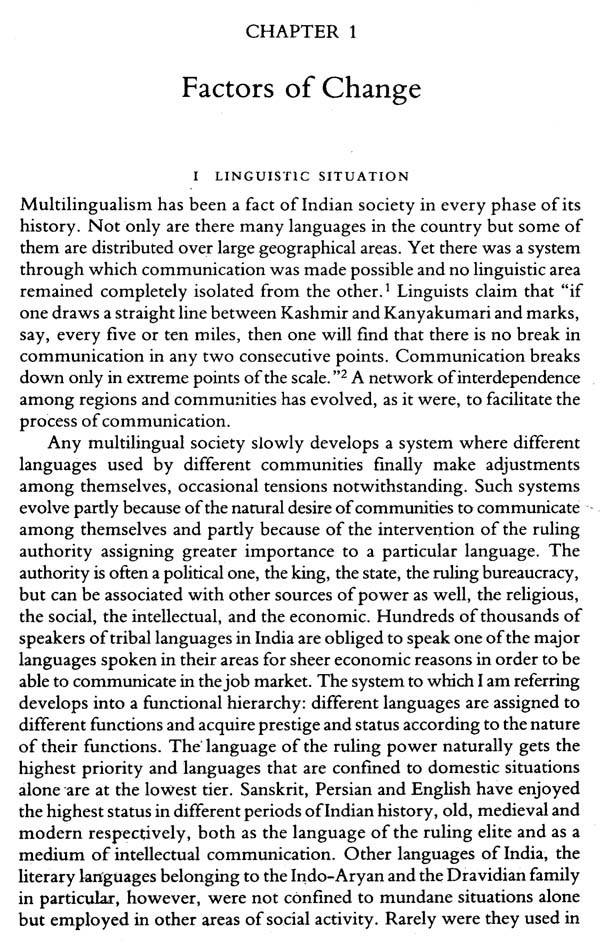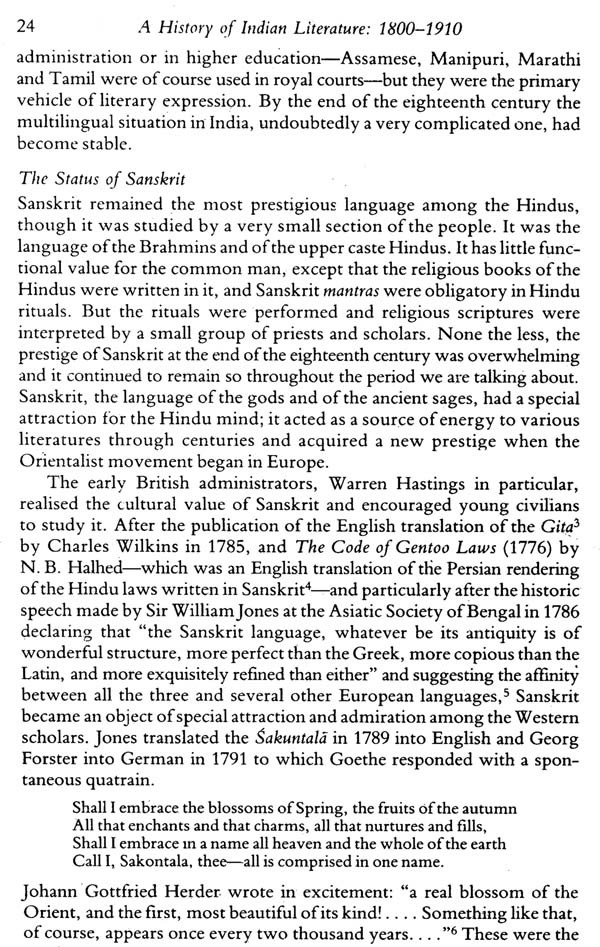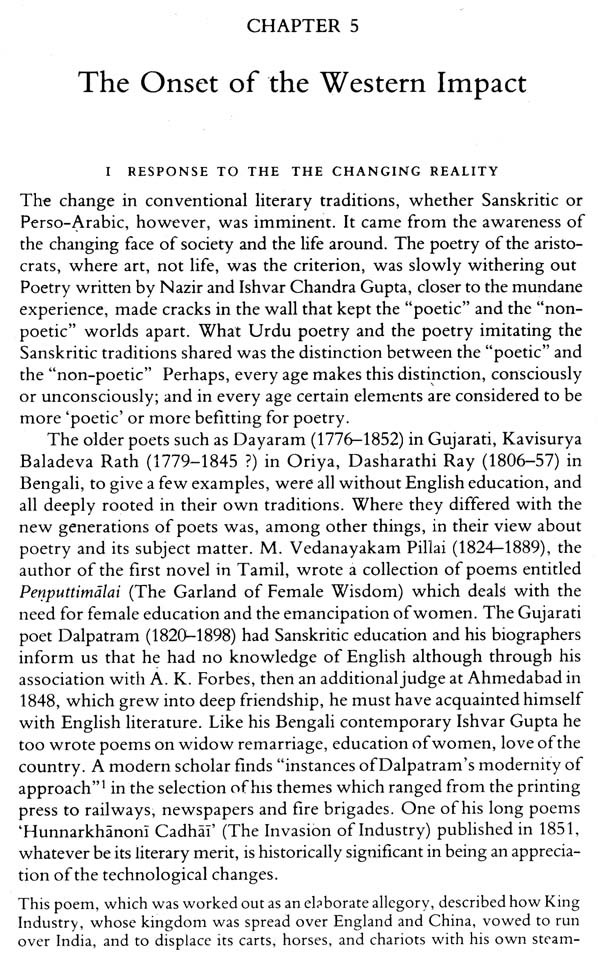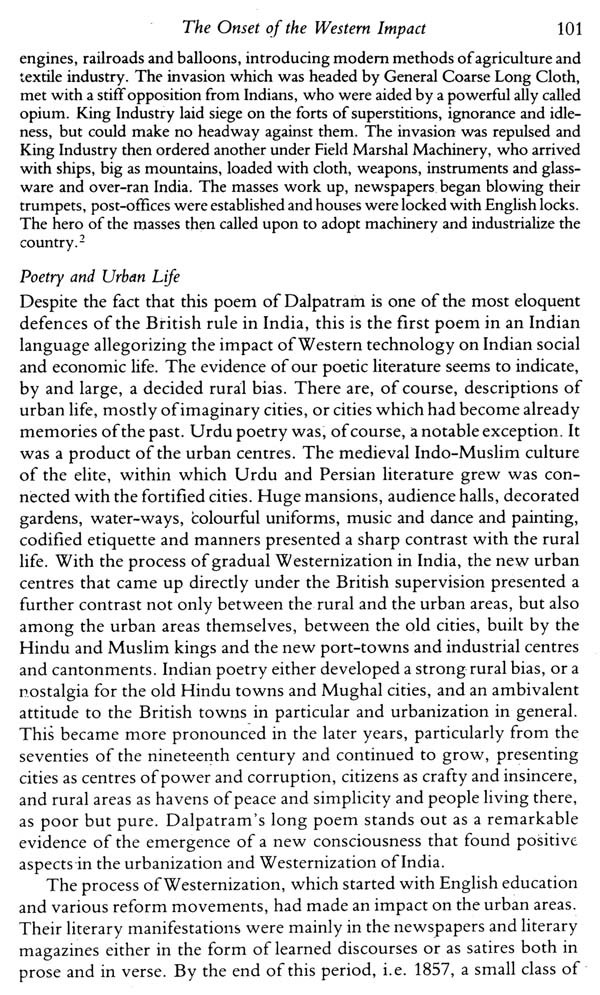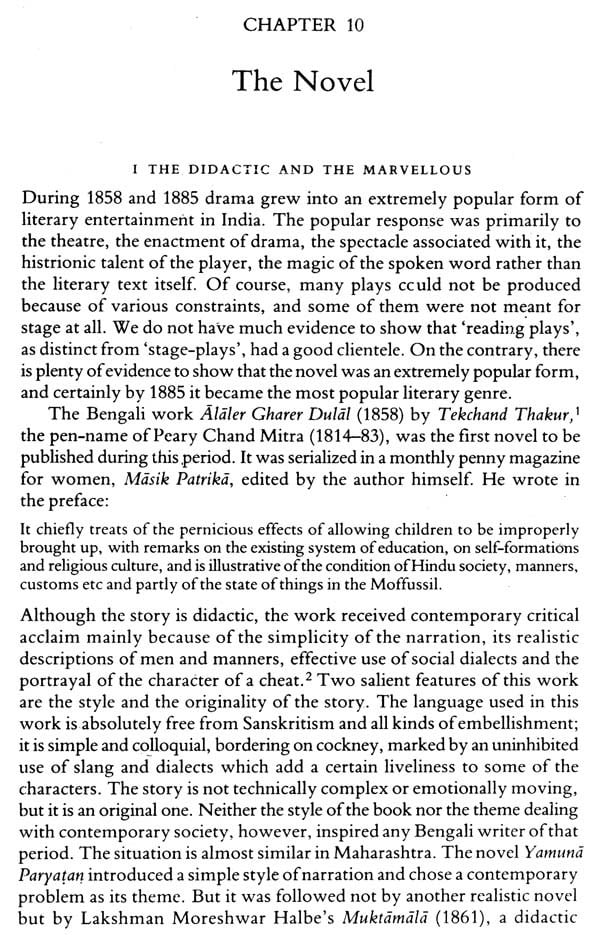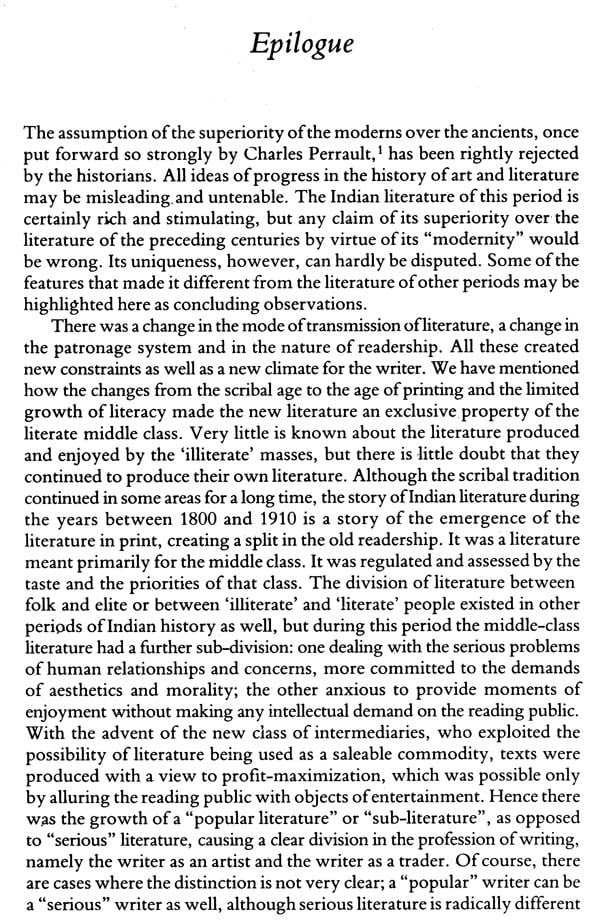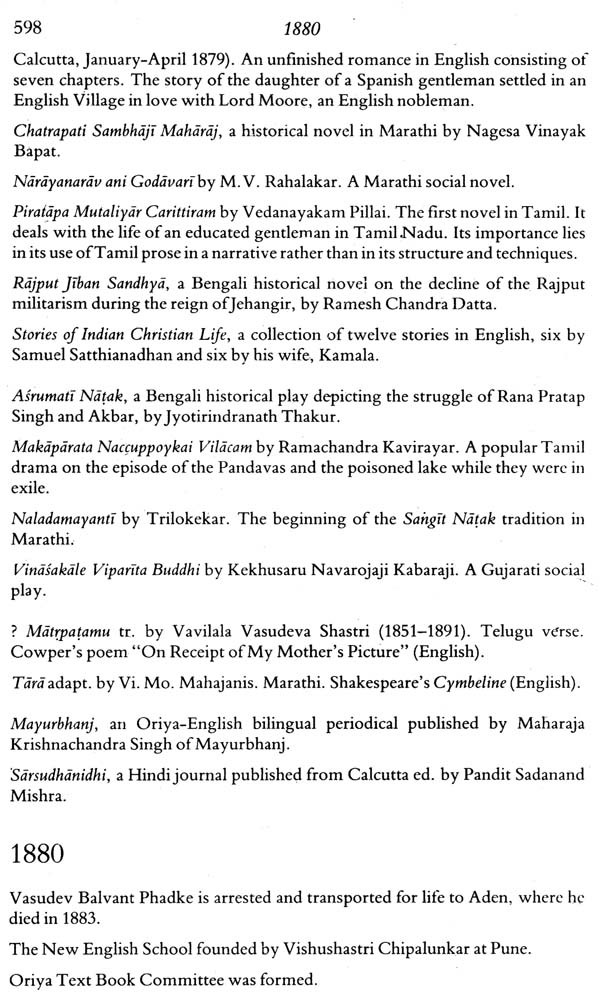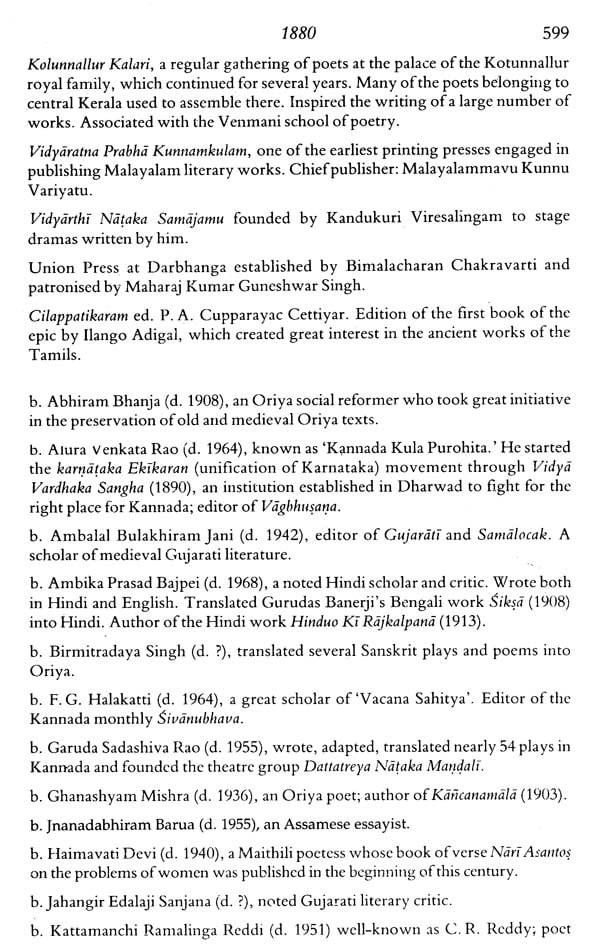
A History of Indian Literature (1800-1910 Western Impact: Indian Response)
Book Specification
| Item Code: | NBZ805 |
| Author: | Sisir Kumar Das |
| Publisher: | SAHITYA AKADEMI, DELHI |
| Language: | English |
| Edition: | 2015 |
| ISBN: | 9788172010065 |
| Pages: | 816 |
| Cover: | HARDCOVER |
| Other Details | 10.00 X 7.00 inches |
| Weight | 1.48 kg |
Book Description
The idea of a history of Indian literature first occurred to me several years ago when I was giving a course on Literary Historiography to my students at the University of Delhi. I wanted it to be a story of literary activities of the Indian people in its totality, an account of interrelations between various literary traditions cutting across languages and regions and not a collection of separate accounts of different Indian literatures bound in one volume. Scholars to whom I talked about it warned me about its complexities and pitfalls and dangers. Therefore, when I brought this matter to Professor Indra Nath Choudhuri, Secretary, Sahitya Akademi, during a casual conversation I did not expect any positive response from him. But I was wrong. At his instance I prepared a draft outlining the plan of a ten-volume history of Indian literature to which he and Professor V. K. Gokak, then President of the Akademi, reacted favourably.
The Akademi arranged a three-day meeting in December 1986 inviting leading scholars of almost all the languages recognized by it to discuss the plan. The participants in that meeting scrutinized the plan, pointed out its limitations, suggested improvements, and debated on various issues related to the writing of a history of such magnitude. Apprehensions about the feasibility of such a task were expressed so strongly by some of the scholars at the initial stage of the debate that the final decision urging the Akademi to accept the challenge despite the enormity of the task came as a surprise to me. The Akademi entrusted to me the responsibility of preparing the volume covering the period between the years 1800 and 1910. I accepted the assignment in May 1987 and decided to complete it within two years. In the preparation of this work I have had the privilege of being helped by a team of scholars. This was an experiment probably undertaken for the first time in this country. Normally to work with a group of scholars, different from one another in attitudes and temper, sense of priorities and habits of making and breaking promises, can be one of the most difficult propositions of life. I confess I had many anxious moments. Some scholars declined to complete the promised work after keeping me waiting for long, some did their work after great persuasion and some could not be persuaded at all. Changes had to be made in the team from time to time causing interruption and delay in the work.
The compensation, however, is more than adequate. I have found new friends, gained new experiences and learnt what I could not have learnt otherwise. The least I can say is that it is an unforgettable experience. I thank warmly each one of the Preface scholars in the team for sparing their precious time and sharing their knowledge and perception of their own literature with me. The response to a questionnaire I sent to a large number of people was rather poor. But I must thank them who have been very kind in responding to it. Comments and opinions received from Professor Bhudeb Chaudhuri, Professor P. R. Hiranandani, Mr M. Kamal, Professor V. N. Nambudiri, Professor Gulam Mohd.
Shah, Mr Ram Shewalkar, Dr Kala Thairani, Dr B. Radhakrishnari and Dr Vasantharao Venkata Rao were most useful. My sincere thanks are due to Professor G. C. Narang, Professor K. Mahapatra, Dr Chandrakanta Mehta, Dr Panchanan Mohanty, Dr A. K. Namboodiripad, Professor Indira Parthasarathy, Dr Prakash Pattanayak, Mr S. Balu Rao, Dr C. Raveendran, Dr Subir Raychaudhuri, Professor Namwar Singh, Professor Prem Singh, Mr Mohd. Yousuf Taing and Dr Harish Trivedi. Some of them have helped me in checking facts, some in locating and procuring books and journals, some in collecting information and translating passages from books written in languages which I do not read, and some by their stimulating conversation. I owe a debt of gratitude to Mr Swapan Majumdar. Never failing in encouragement and never sparing in criticism he has helped me throught-out the preparation of this work.
I thank the staff of the National Library, Calcutta, for the strenuous checking of data concerning Assamese, Bengali, Indian-English, Kannada, Malayalam, Marathi, Punjabi, Tamil and Sindhi included in the second part of this volume. The chronology has gained greater authenticity because of the services rendered by this group of scholars. I thank Shri Birendra Kumar Bhattacharyya, President, Sahitya Akademi, for his quiet appreciation and gentle encouragement. I am thankful to the learned members of the Steering Committee for their confidence in me. I owe warmest thanks to Professor Indra Nath Choudhury without whose initiative and dynamism this plan would have remained unexecuted. I want to thank his colleagues all of whom were kind and helpful to me. I am particularly grateful to Mr K. C. Dutt, the Librarian and Prof. Mohan Lal, who had gone through the manuscript carefully. I must also mention how deeply indebted I am to Mr Buddhadev Bhattacharya for his sustained labour of love, and to my daughter, Laura who helped me prepare the index. I had to do this work in addition to my normal duties. This is not a product of a man of leisure. I worked when people usually rested or relaxed. But I have enjoyed every moment of it. Now when the work is done I look back to the hectic days of the last two years when I remained almost possessed by the excitement of the work.
It has been possible mainly Preface xiii because of the labours of my predecessors in the field. I offer my homage to their hallowed memory. 'No form of study is more beset by fallacies and "idolism" than the history of literature' wrote W. P. Ker about a hundred years ago. I earnestly hope my critics will not merely be engaged in finding faults and fallacies in this work-they must be too many-but will produce a much better history of Indian literature replacing it.
**Content and Sample Pages**
